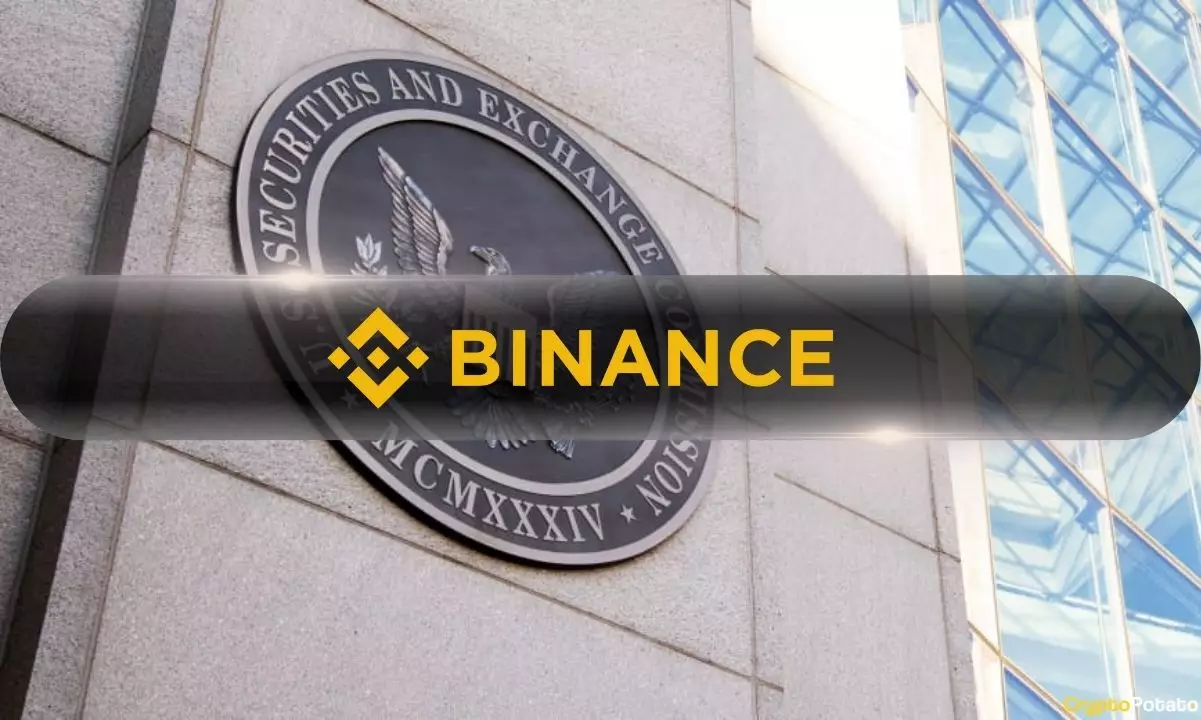The landscape of cryptocurrency regulation is becoming increasingly contentious, particularly in the wake of actions taken by the U.S. Securities and Exchange Commission (SEC) against major players like Binance and its former CEO, Changpeng Zhao. By filing a lawsuit to address allegations of operating an unregistered securities exchange, the SEC is not only pursuing enforcement against alleged mispractices but is also testing the applicability of existing securities laws in an evolving digital marketplace. This article examines the intricacies of the SEC’s approach, the legal implications surrounding the case, and the broader responses from the cryptocurrency community.
At the heart of the SEC’s litigation lies the Howey Test, a longstanding legal framework that determines whether an asset qualifies as a security. The criteria include an investment of money, a common enterprise, and an expectation of profit derived from the efforts of others. The SEC argues that the trading of Binance’s native token, BNB, along with ten other cryptocurrencies, meets all the necessary conditions to be classified as securities. This assertion creates far-reaching implications; if proven correct, it could significantly alter how cryptocurrency exchanges operate under U.S. law.
The SEC asserts that Binance created an environment where users believed their investments were contingent upon Binance’s success, thereby fostering an expectation of profit. The complexity arises from the SEC’s claim that not only direct sales of tokens but also secondary market transactions fall under its jurisdiction, challenging Binance’s long-held position that these trades operate outside securities regulations.
The trajectory of the SEC’s lawsuit has not been without scrutiny. Judge Amy Berman Jackson has expressive reservations concerning the SEC’s arguments, prompting the agency to revise its complaint. In responding to these critiques, Binance and Zhao filed a motion to dismiss the amended complaint, arguing a lack of sufficient evidence from the SEC to support its claims. This legal back-and-forth underscores not just the potential vulnerabilities in the SEC’s position, but also the broader unease within the industry about how regulations are formulated and enforced.
The industry response has been equally robust, particularly from figures like Paul Grewal of Coinbase and Stuart Alderoty of Ripple. They raise salient points about the SEC’s perceived inconsistency in regulatory enforcement, particularly regarding Ethereum and Bitcoin, which have yet to receive a similar classification as securities. This inconsistency inevitably fuels calls for clearer guidelines from regulators, as the boundaries of what constitutes a security in the crypto realm remain perilously fluid.
In its recent filings, the SEC has dismissed accusations of overreaching, contending that it is not overstepping its authority but rather performing its duty to protect investors in a burgeoning industry. The agency’s statement that “the foretold vast and purported suffocating assertion of regulatory dominion over an entire industry has not occurred” highlights its position to strike a balance between regulatory oversight and fostering innovation.
However, critical voices within the crypto space have expressed skepticism about the SEC’s motives and methodologies. Industry stakeholders worry that the regulatory environment, particularly under the current administration, may stifle innovation and harm market confidence. Notably, the backdrop of political maneuvering—such as the anticipated leadership change in the SEC with the impending exit of Chair Gary Gensler—adds another layer of strategic complexity to the discourse around cryptocurrency regulation.
As the SEC’s case against Binance unfolds, the implications for the broader cryptocurrency sector will be significant. With legal precedents potentially being set, how the courts interpret the Howey Test and the applicability of existing securities laws could reshape the regulatory framework governing digital assets. The call for more transparent and consistent regulation highlights the urgent need for dialogue between regulatory bodies and the crypto industry—a conversation that must include input from various stakeholders to shape an environment conducive to growth while maintaining investor protections.
The SEC’s lawsuit against Binance is more than just about a single entity; it encapsulates the struggle for clarity in the emerging realm of digital assets. As both regulators and industry players navigate this evolving landscape, it is crucial to address fundamental questions about accountability, oversight, and the future trajectory of cryptocurrency’s role within the financial ecosystem.

